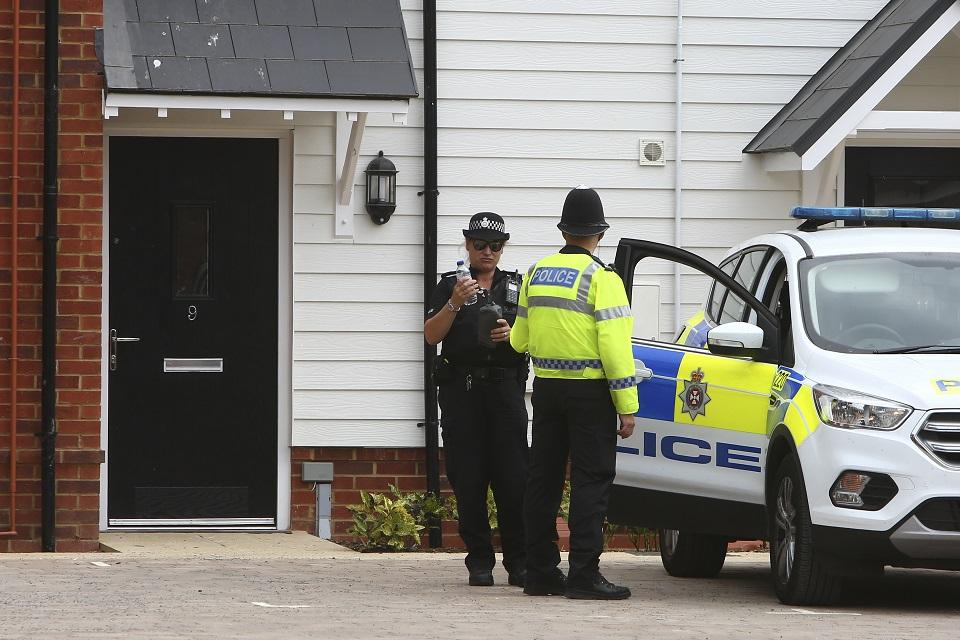British woman caught in assassination ‘crossfire,’ Novichok death hearing hears

SALISBURY, England — A British woman killed by the Novichok nerve agent following the poisoning of former Russian double agent Sergei Skripal was caught in the "crossfire" of an international assassination attempt, a public inquiry heard on Monday.
Mother-of-three Dawn Sturgess died from exposure to Novichok in July 2018 after her partner found a counterfeit perfume bottle which police believe had been used by Russian intelligence operatives to smuggle the poison into the country.
Evidence suggested the bottle had contained enough poison to kill thousands, lawyer Andrew O'Connor said on the first day of the hearing into Sturgess's death.
"You may conclude ... that those who discarded the bottle in this way acted with a grotesque disregard for human life," he told the inquiry chair, former Supreme Court judge Anthony Hughes.
He said Sturgess, 44, was an innocent victim who had been caught in "the crossfire of an illegal and outrageous international assassination attempt."
Skripal, who sold Russian secrets to Britain, and his daughter Yulia had been found slumped unconscious on a public bench in the southern English city of Salisbury four months earlier after becoming poisoned by Novichok after it was smeared on his front door handle.
Both they, and a police officer who went to Skripal's house, were left critically ill from the effects of the military-grade nerve agent, but recovered, as did Sturgess's partner Charlie Rowley.
While British police have charged in absentia three Russians, who they say are GRU military intelligence officers, over the attack on Skripal and his daughter, no formal case has been brought against them over the death of Sturgess, 44.
The three men and Moscow have denied any involvement.
Inquiry 'a clean sheet'
The inquiry, which will have its initial hearings in Salisbury, aims is to provide her family with answers to how her death came about, and it will hear some confidential evidence in secret from the government and the security services.
That will include details of Skripal's relationship with the British intelligence agencies.
Last month, Hughes ruled that the Skripals would not give evidence themselves, saying there was an "overwhelming risk" they still faced physical attack if they could be identified and their current whereabouts revealed.
Two of the Russians accused by Britain of carrying out the poisoning later appeared on Russian TV to deny involvement, saying they had been innocent tourists visiting the city's cathedral.
The incident led to the biggest East-West diplomatic expulsions since the Cold War, and relations between London and Moscow have since got even worse following Russia's invasion of Ukraine.
The Russian embassy in London said last week the British foreign ministry's "references to the alleged use of the mythical Novichok are quite preposterous."
O'Connor said in response to recent commentary from the embassy, Hughes was not "the British authorities" and would be acting entirely independently.
"It needs to be said that the object of this inquiry is to start with a clean sheet, without making any assumptions about the accuracy of what has been said before, whether by public figures or otherwise," Hughes said. — Reuters




